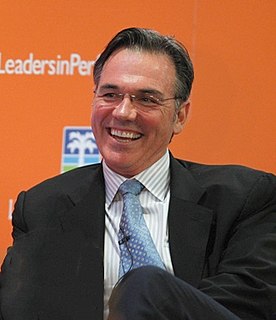A Quote by Mark Pincus
Clearly as you move to being a public company, probably even more than growth, there is a huge value based on predictability.
Related Quotes
Growth isn't central at all, because I'm trying to run this company as if it's going to be here a hundred years from now. And if you take where we are today and add 15% growth, like public companies need to have for their stock to stay up in value, I'd be a multi-trillion-dollar company in 40 years. Which is impossible, of course.
Women are clearly the major consumers in far more than just female categories. It doesn't matter whether it is purchases of cars, cosmetics, or even products for men, female consumption power is the leading consumption power in the world. Any company that overlooks the woman as the decision maker is making a huge mistake.
The entrepreneurial struggle is the same at basically every stage in the sense that there's maybe slightly less risk but strategic issues are generally always the same. Now there's so much existential risk from another company either being able to compete or to disrupt you in the same way you're disrupting somebody else, an entrepreneur needs a real steady partner who has the ability to start working with them in the Seed or the A and be credible and value-add with strategic advice, and just be backstopped by so much capital that you can do any growth round or even a public round.
I basically see two reasons for a going public: Glencore gets access to more money. It is a way of funding your business and to finance growth. Plus: You have more liquid shares. It is easier to leave the company and redeem your shares. The 'going public' may also be an exit strategy for the top management.
Profitability, growth, and safeguards against existential risks are crucial to strengthening a company's long-term prospects. But if these three factors constitute a company's 'hard power,' firms also need 'soft power': public trust and acceptance, won by fulfilling a company's social responsibility.



































